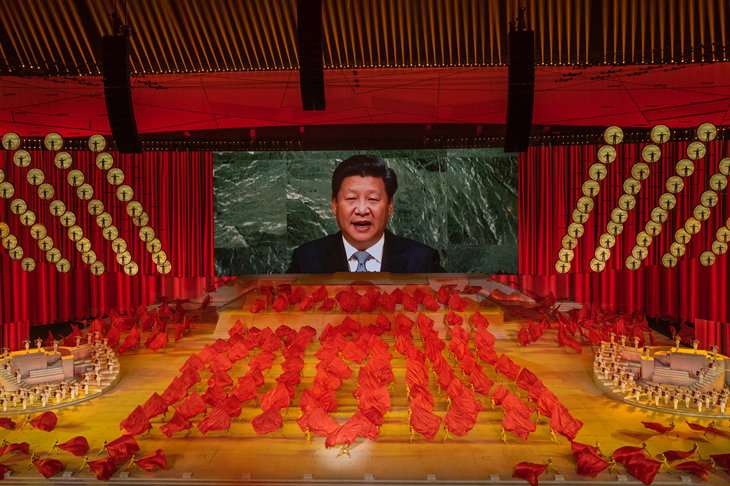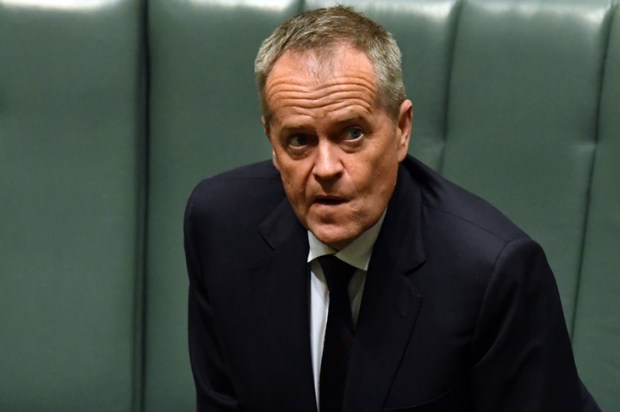The first lesson in analysing the Chinese Communist Party is to recognise that everything written and said is self-serving. It is in the service of the party itself, and, increasingly, its leader, Xi Jinping. All nations seek to advance their own sovereign interests, but the most successful ones recognise that compliance with an international rules-based order generates advantages for all and compounds the benefits. China however proclaims one thing but does another. There are many examples.
When Xi Jinping stood next to Barack Obama and proclaimed that he would not militarise the artificial islands in the South China Sea, the CCP was already building military installations on them.
The party’s recent 100th anniversary publication, The CCP – Its Mission and Contributions, is replete with further examples. ‘China has strictly enforced international conventions such as the Paris Agreement, the Convention on Nuclear Safety, the Treaty on Non-Proliferation of Nuclear Weapons, the Convention on the Prohibition of the Development, Production and Stockpiling of Bacteriological (Bacterial) and Toxin Weapons and on their Destruction… it has actively engaged in international exchanges and cooperation under the UN framework in such fields as… cyber security and biosafety, as well as polar, outer space and ocean affairs’.
Compare these claims to China’s actions in rapidly building coal-fired power stations, constructing new nuclear missile silos, developing hypersonic weapons and snubbing international rulings on the South China Sea. And what about the gain-of-function biological research in Wuhan that is most likely the cause of the Covid-19 pandemic?
These matters are significant when assessing China’s statements of future intent, such as requesting to join the Comprehensive and Progressive Agreement for Trans-Pacific Partnership free-trade agreement.
Responding to the news that China had applied to join the 11-nation free trade arrangement, the respected commentator, Paul Kelly, asked ‘is Australia a dumb country in diplomatic terms or can we exploit the golden opportunity Beijing has given us?’
He went on to write: ‘The worst mistake Australia could make would be to rigidly oppose China outright – that is what the China hawks in this country will demand. They need to be repudiated’. But the material distinction over China is between the realists and the wishful thinkers.
As Kelly acknowledges, ‘China would need to make a range of economic reforms in state-owned enterprises and pro-market practices’ and ‘China’s entry would not be acceptable unless it adhered to World Trade Organisation rules, honoured its current free trade agreements with member nations and, obviously, engaged during negotiations at ministerial and official level with all members’.
Under Xi Jinping, the market is being significantly restrained. Even private enterprise is being brought under the control of the CCP, with a policy of placing party representatives on governing boards. The role of state-owned enterprises has been strengthened, not diluted. Increasingly, many foreign investors regard China as a risk.
In a recent statement on the WTO Trade Review of China, Australia was frank. ‘China has increasingly tested global trade rules and norms by engaging in practices that are inconsistent with its WTO commitments. Australia is one of numerous WTO members that has experienced this firsthand… there is a growing body of information that demonstrates China’s actions are motivated by political considerations’. The statement continued: ‘China has assured Members of its commitment to the rules-based order; but from our viewpoint there is a growing gap between China’s rhetoric and its actions’.
The boundary between the state and business enterprises has become blurred increasingly under Xi. Tensions are resolved in favour of the state. Further examples arise almost every week. Hong Kong has quietly widened the language of its national security law from actions that ‘endanger national security’ to ‘contrary to the interests of national security’. No wonder many foreign firms are considering moving elsewhere. Chinese courts have upheld anti-suit injunctions against foreign firms seeking to make claims for patent infringements while cyber-enabled intellectual property theft continues unabated.
The Wall Street bankers who still believe that China will pursue economic liberalism should read the CCP Mission Statement. In it, the Central Committee adopts the Marxist doctrine that socialism is a stepping-stone to communism. Responding to criticism that China was departing from Marxism, the party insists that it is still in ‘the primary stage of Socialism’, yet to embark on the communist stage when all private property will be eliminated. In the meantime, all aspects of society are subject to the ‘strict control of the Communist party’ including its ‘centralised’ directives.
It is arguable that the world has reached an inflexion point on China. Not only are an increasing number of nations cooperating in military exercises or transiting the China Seas, but they are also calling out China’s breaches of World Trade Organisation agreements and human rights violations. Some 43 countries, the largest number ever, delivered a cross-regional joint statement last week about the treatment of the Uighurs in Xinjiang. Small nations such as Lithuania and the Czech Republic have established links with Taiwan and the European Union has increased its engagement with the Republic of China. A reluctance to confront the CCP is being replaced by frankness, cooperation and global resistance.
At the same time, the Chinese leadership is bunkered down in Beijing. Although the world’s largest emitter which is rapidly building coal-fired power stations to overcome its energy shortage, China’s President will not be at the Glasgow climate conference. Xi has not travelled outside China for almost two years. Nor have most of his senior ministers. It has been accepted generally that they have been isolated because of a fear of contracting Covid, although recent reports suggest other factors. As I wrote in my previous column, there is a major power play underway in China, as Xi seeks to crush his rivals, particularly those associated with Jiang Zimen. Unconfirmed reports have filtered out of the country of a plot to assassinate a senior figure, suspected to be Xi. Security surrounding the recent 100th anniversary events was extraordinarily high, even by the usual strict standards. While Xi commands the PLA, Jiang has retained considerable influence over the larger police and internal security forces. Leaving China may be dangerous for Xi’s health in more ways than one!
Got something to add? Join the discussion and comment below.
Get 10 issues for just $10
Subscribe to The Spectator Australia today for the next 10 magazine issues, plus full online access, for just $10.
You might disagree with half of it, but you’ll enjoy reading all of it. Try your first month for free, then just $2 a week for the remainder of your first year.














Comments
Don't miss out
Join the conversation with other Spectator Australia readers. Subscribe to leave a comment.
SUBSCRIBEAlready a subscriber? Log in